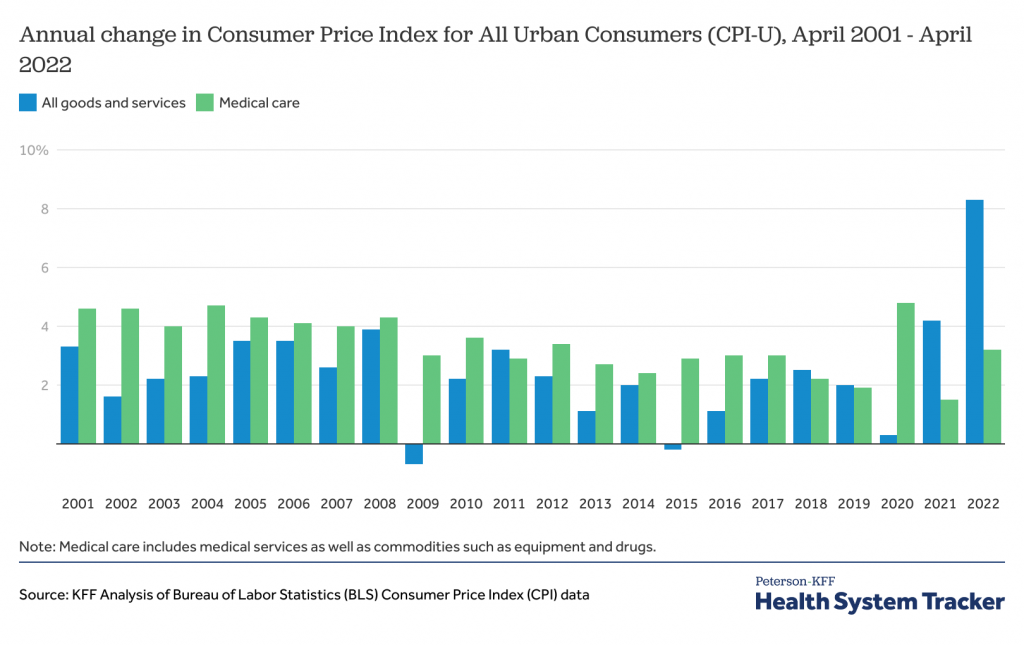
Overall inflation has not yet flowed through to the health sector
Prices for medical services typically rise more quickly than the broader economy, but the reverse has been true recently as general inflation rose rapidly.
A new KFF analysis finds that, in July, overall prices as measured by the Consumer Price Index were up 8.5 percent compared to the previous July, while prices for medical care increased by 4.8 percent during the same year.
The recent trend reflects the unusually high inflation affecting other parts of the economy, especially gasoline, energy and food. While inflation in those sectors can impact other areas of the economy, they have not yet affected health care prices in a major way.
Health care prices are generally set in advance, either administratively for government programs such as Medicare and Medicaid, or through contracts between providers and insurers, with many contracts tied to the calendar year. That could create a delay before wage increases and other costs related to broader inflation measures are fully incorporated into health care prices. As insurers set premiums for next year over the coming months, a better picture will emerge of how their price negotiations with health care providers are playing out.
The analysis can be found on the Peterson-KFF Health System Tracker, an information hub dedicated to monitoring and assessing the performance of the U.S. health system.